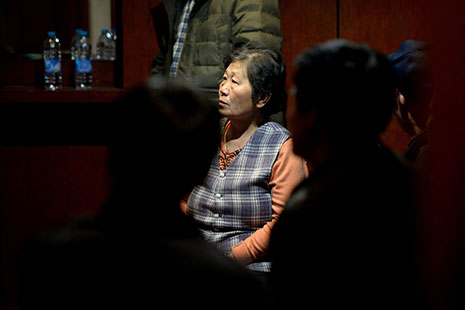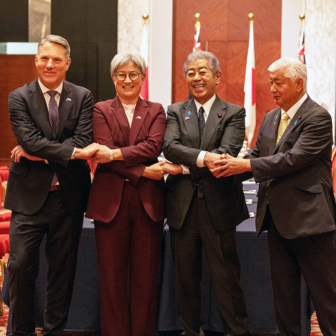CHINA is among the world’s richest territories for conspiracy theories. From the Cultural Revolution and the shadowy world of late Maoism onwards, the assumption that bad things were happening – things that people couldn’t see but had grounds to suspect – usually turned out to be a sound one. From the Gang of Four down to Bo Xilai and his wife Gu, the idea that vast forces lurk in the undergrowth, ready to upend everything, has had powerful traction in the consciousness of the people and the political elites.
So it’s not surprising that the missing Malaysian jet MH370 has aroused every possible speculative angle among the Chinese commentariat and the country’s vast social media universe. The combination of where the plane disappeared (near maritime territory disputed by China), who was on it (over 150 Chinese, and two people bearing stolen passports) and how the Malaysian authorities have handled it (so far, fairly chaotically) are enough to make even the most tepid practitioner of conspiracy theories in China go into overdrive.
Beyond this baffling story, and the potential deaths of over 230 people, lies something more elementally meaningful for China’s central leadership and the state they run. Even at the best of times, Beijing is beset by fears of attacks on its legitimacy by the “enemies within.” At the top of this list come separatists – those who are linked to movements to break away from the Chinese modern state – whether they are in Tibet or Xinjiang or Inner Mongolia. The rhetoric and the security measures used to attack these groups are particularly fierce. The 2008 Tibet uprising, the 2009 Xinjiang unrest and the 2011 riots in Inner Mongolia were terrible blots on the final years of Hu Jintao’s rule. In stark contrast to the language of harmonious society he was busily promoting, these rude interjections showed that, in fact, China was no such thing.
The truly horrific attacks on people in Kunming station early this month were the worst possible prelude to the disappearance of the jet. The Chinese government, and large numbers of netizens, had been appalled when US papers refused to accept that the Kunming attacks were terrorist in character. The New York Times and other major outlets smothered the word terrorist with inverted commas, conveying an air of doubt. For many ordinary Chinese, however, the government didn’t need to make the link; they’d already made it for themselves. The government’s real task was to ensure there wasn’t a violent, widespread backlash against ethnic minorities within China. This motivation lay behind the suppression of some of the more appalling photos taken in the aftermath of the station attacks.
An event like that would make any society jittery. Add the disappearance of flight MH370, and it’s no surprise that the atmosphere of paranoia within China has intensified. Even if the world learns what happened to the aircraft, and why, it’s likely that many Chinese people, from the elite down, will suspect that this was simply another part of a targeted attack on their stability and security.
The simple fact is that after sixty-five years in power, the Communist Party of China has many enemies. Fear of these enemies fuels a vast state security apparatus costing over US$100 billion a year. In this atmosphere, conspiracy theories often develop a life of their own and, once started, are next to impossible to suppress. Counterfactuals can never be disproven. The idea that Kunming and the disappearing jet are somehow linked to a large, ominous security threat to the Chinese state and its ruling party stands on decades of suspicion and fear.
There will also be more elaborate theories. Many believed in 2008 that the Tibetan uprising was incited by the government in order to justify a pre-Olympic clampdown. Others will see the jet as part of a Chinese or US plot.
The most rational response to the jet’s disappearance and the Kunming attacks, and to other incidents that create fatalities and confusion, is that they are signs of just how immense the task of governing and administering China has become. One hundred and fifty Chinese families are demanding that their government do something, yet it is clear that the authorities have next to no real power to influence events. Chinese frustration at Malaysia’s response to the disappearance, expressed by Qin Gang, the spokesperson for the foreign affairs ministry, certainly seemed too heartfelt to have been performed for form’s sake.
These are all signs that China is rapidly moving beyond the world where, as in 1989, it could just throw security agents and army actors in and brutally restore order. China’s leaders are in a world where the enemies they seek are blurred and shadowy, their actions impossible to predict, and the public’s demands increasingly tough. •




